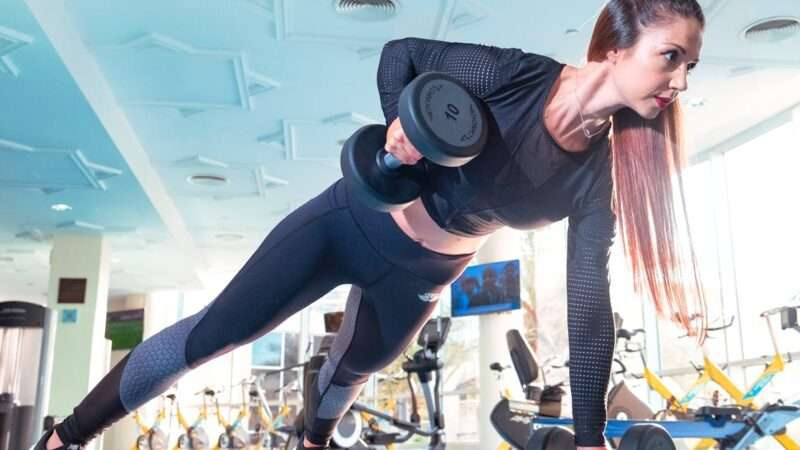
Introduction
Taking your first steps into fitness is like entering a labyrinth because it brings excitement while presenting so many options. Many new students may ask themselves what their first step should be when they start. How do I avoid injury? What if I can’t continue? The best fitness workouts for beginners, according to experts’ recommendations, focus more on steady commitment with precise movement form and step-by-step advancement. The guide provides basic workouts to improve fitness levels both at home and in the gym that help beginners reach their various training goals. Medical fitness studies combined with expert recommendations will help us turn our initial idea of incompetence into successful achievements.
Why Exercise Matters for Beginners
Exercise helps people develop strong physical and mental abilities beyond its aesthetic effect. Scientific studies confirm that people who start exercising with basic workouts for 8–12 weeks achieve a 15% improvement in cardiovascular health along with a reduction in stress as well as improved muscle development. The key? The key to success is to start slowly, maintain your form, and recognize your progress.
Essential Beginner Workouts: Strength, Cardio, Flexibility
1. Strength Training: Build a Foundation
Benefits: Regular exercise builds muscle tissue as well as enhances metabolic functions and straightens human posture.
Best for: It is best suited for beginners who want to develop strength while starting their training journey.
Key Exercises:
- Bodyweight Squats:
- How to: Stand with feet shoulder-width apart and lower your hips as you would sit in a chair, and then stand up.
- Modifications: You can use a chair for stability during this exercise and make small adjustments to the depth as well.
- Sets/Reps: 3 sets of 10–12 reps.
- Push-Ups (Knee or Wall Variation):
- How to: Place hands slightly wider than shoulders, lower chest toward floor, then push upward.
- Modifications: Do push-ups on your knees or with your hands elevated on a bench.
- Sets/Reps: 3 sets of 8–10 reps.
- Lunges:
- How to: Step forward, bend both knees to 90°, then push back to start.
- Modifications: Hold the wall for stability.
- Sets/Reps: 3 sets of 8 reps per leg.
Pro tip: Rest 60 seconds between sets. Focus on control, not speed
2. Cardio Workout: Increase Stamina
Best for: Beginners who want to start working out with minimal equipment.
Key Exercises:
- Brisk Walking:
- How to: Walk at a pace where you can talk but not sing.
- Modifications: Add intervals (1 minute fast walk + 1 minute slow).
- Duration: 20-30 minutes, 3 times a week.
- Jump Rope:
- How to: Jump lightly on your toes, rotating the rope with your wrists.
- Modifications: Step over the rope if jumping is too intense.
- Duration: 5–10 minutes (build up gradually).
- Cycling (Stationary or Outdoor):
- How to: Maintain a steady speed while keeping the resistance low for smooth pedaling.
- Modifications: Use a recumbent bike to provide back support.
- Duration: 15-20 minutes, 2 times a week.
Science says: Even 150 minutes of moderate cardio exercise a week reduces the risk of heart disease by 30% (ACSM).
3. Flexibility and mobility: Injury prevention
Best for: Beginners need to find a balance between strength and flexibility.
Key Exercises:
- Dynamic Stretching (Pre-Workout):
- Circular movements of the hands, swinging the legs and twisting the torso.
- Duration: 5–10 minutes.
- Static Stretching (Post-Workout):
- Hamstring Stretch: Sit and reach toward toes.
- Child’s Pose: Kneel, sit back on heels, and stretch arms forward.
- Duration: Hold each stretch 20–30 seconds.
- Yoga (Beginner Flow):
- Try poses like Downward Dog, Cat-Cow, and Warrior I.
- Duration: 20-30 minutes, 2 times a week.
4. Low-impact workouts: Gentle impact on joints
Best for: Beginners who need easy exercises to start working out without any strain.
Key Exercises:
Swimming: A full-body workout with no stress on the joints.
Resistance band row: Sit down, loop a band around the legs, and pull the elbows back.
Seated leg lifts: Strengthen the quads while sitting.
Weekly Beginner Workout Plan
| Day | Workout Type | Exercises | Sets/Reps/Duration | Rest |
| Day 1 | Strength Training | Squats, Push-Ups, Lunges | 3 sets x 10–12 reps | 60 seconds |
| Day 2 | Cardio | Brisk Walking/Jump Rope | 20–30 minutes | – |
| Day 3 | Flexibility/Yoga | Dynamic Stretches + Beginner Yoga | 15–20 minutes | – |
| Day 4 | Rest or Light Activity | Walk, Stretch | 10–15 minutes | – |
| Day 5 | Strength Training | Glute Bridges, Planks, Resistance Bands | 3 sets x 10–12 reps | 60 seconds |
| Day 6 | Cardio | Cycling/Seated Marching | 15–20 minutes | – |
| Day 7 | Active Recovery | Foam Rolling, Gentle Stretching | 10–15 minutes | – |
Tips for staying consistent
- Set realistic goals: Aim for 3 workouts a week, not 7.
- Track progress: Use a journal or app to log reps, weight, and mood.
- Find a partner: Accountability increases compliance by 40%.
- Exercise together: Prevent boredom by trying new exercises each month.
Common Mistakes to Avoid
- Skipping warm-ups/cool-downs: increases risk of injury.
- Poor Form: quality > quantity; film yourself or use a mirror.
- Overtraining: Rest days promote muscle growth.
- Comparing Progress: your journey is unique; celebrate your wins.
Conclusion: Your Fitness Journey Starts Today
The most suitable fitness workouts for beginners have simple standards that adapt to individual beginner abilities while not requiring any advanced equipment or intense activities. Remember that sustainable progress takes about as long to run a marathon as it does to sprint. People should start by putting on their shoes and spreading out their mat before making their first movement. Eventually your adult self will thank you for this decision.


